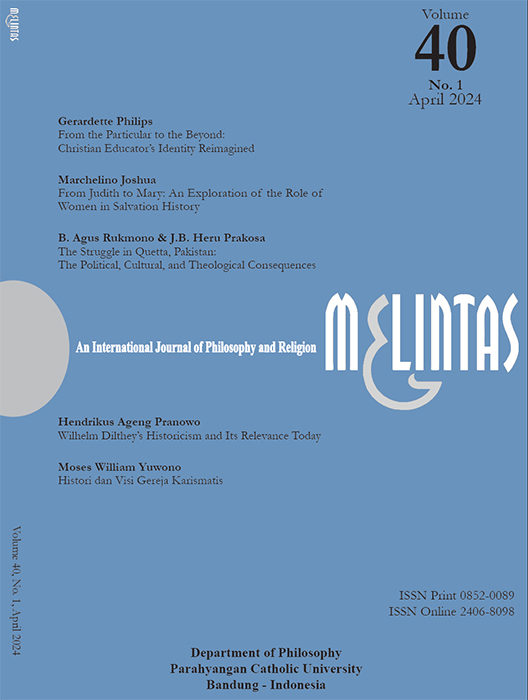The Struggle in Quetta, Pakistan: The Political, Cultural, and Theological Consequences
Main Article Content
Abstract
In Quetta, the capital of Balochistan Province in Pakistan, numerous conflicts persist, driven by ethnic-religious tensions and the dissatisfaction of Baloch Muslims over perceived injustices. To address these issues, we employ a library research method in the form of autoethnography, drawing on personal experience to describe and interpret texts, events, beliefs, and cultural practices. In this way, we incorporate our years of apostolic work in Quetta. We apply Anthony Giddens’ theoretical framework of the Duality of Structure, which explores how social structures are formed through interactions among various social groups that extend beyond physical and temporal boundaries. Our findings reveal that the conflict in Quetta is highly complex, involving political, social, economic, and cultural issues, and not merely a matter of religion. At this stage, politics related to ethnic identity has resulted in specific theological consequences. We believe that a viable response involves initiating dialogue between conflicting groups through political negotiations aimed at reaching mutual agreement, supported by humanitarian efforts for the common good. This praxis can be implemented through the field of education. Drawing inspiration from Lian Gogali, who fostered reconciliation during the ethnic-religious conflict in Poso by establishing a public library, the Vicariate of Quetta Apostolic could consider promoting character-building initiatives for children, emphasising local wisdom rooted in cultural folktales.
Article Details

This work is licensed under a Creative Commons Attribution-NonCommercial 4.0 International License.
MELINTAS applies the Creative Commons Attribution (CC BY NC) license to articles and other works we publish. If you submit your paper for publication by MELINTAS, you agree to have the CC BY NC license applied to your work.
